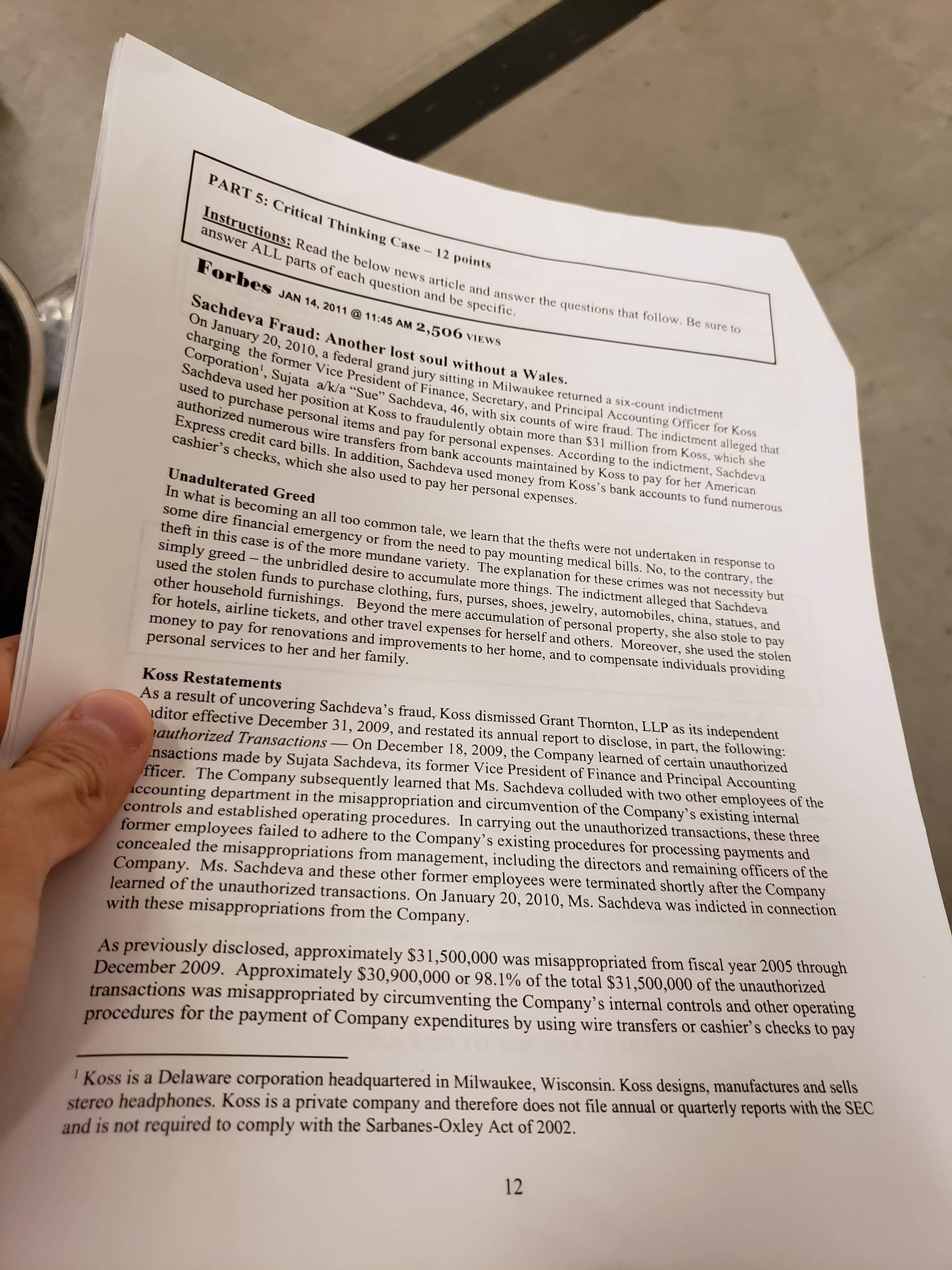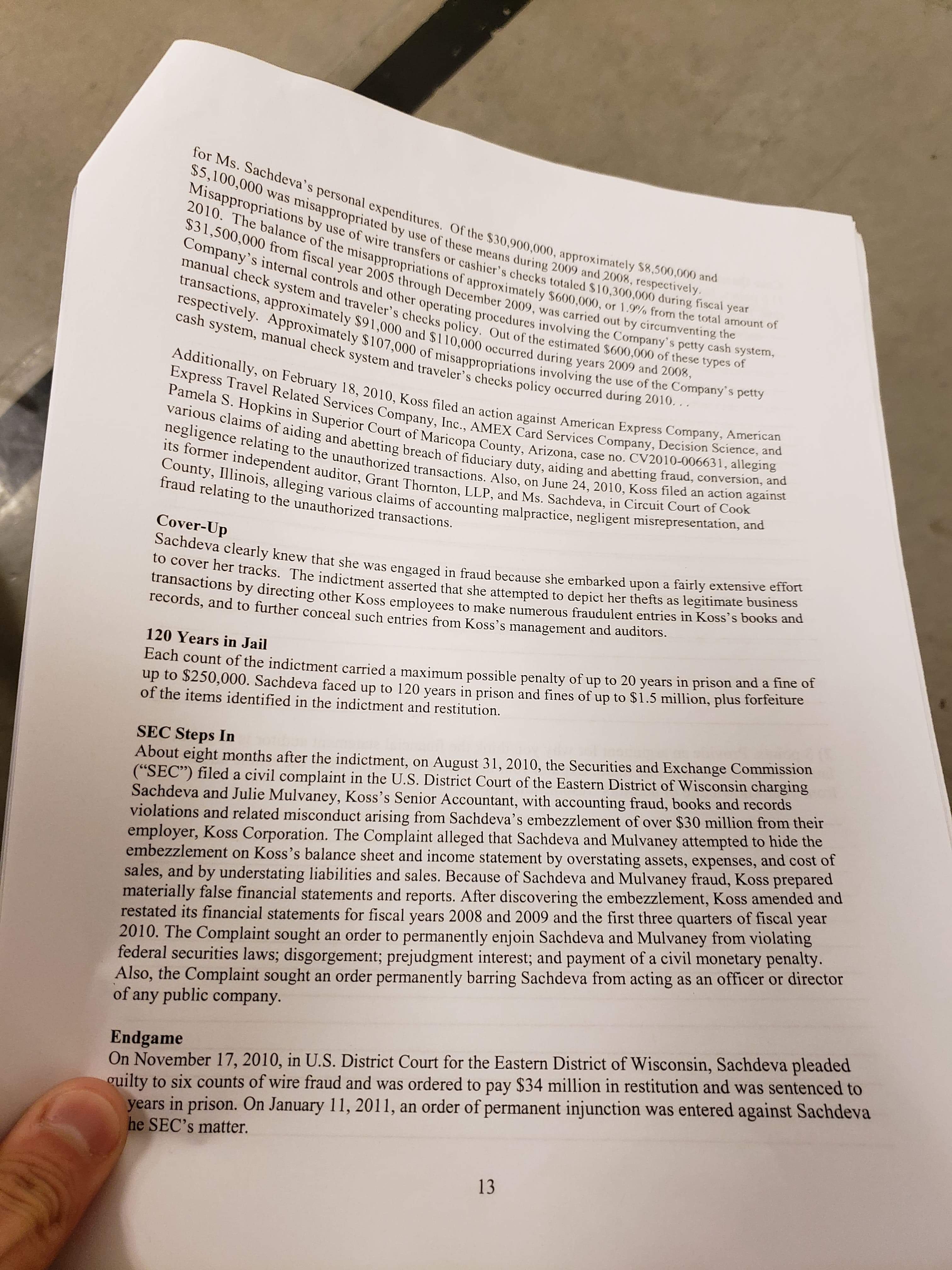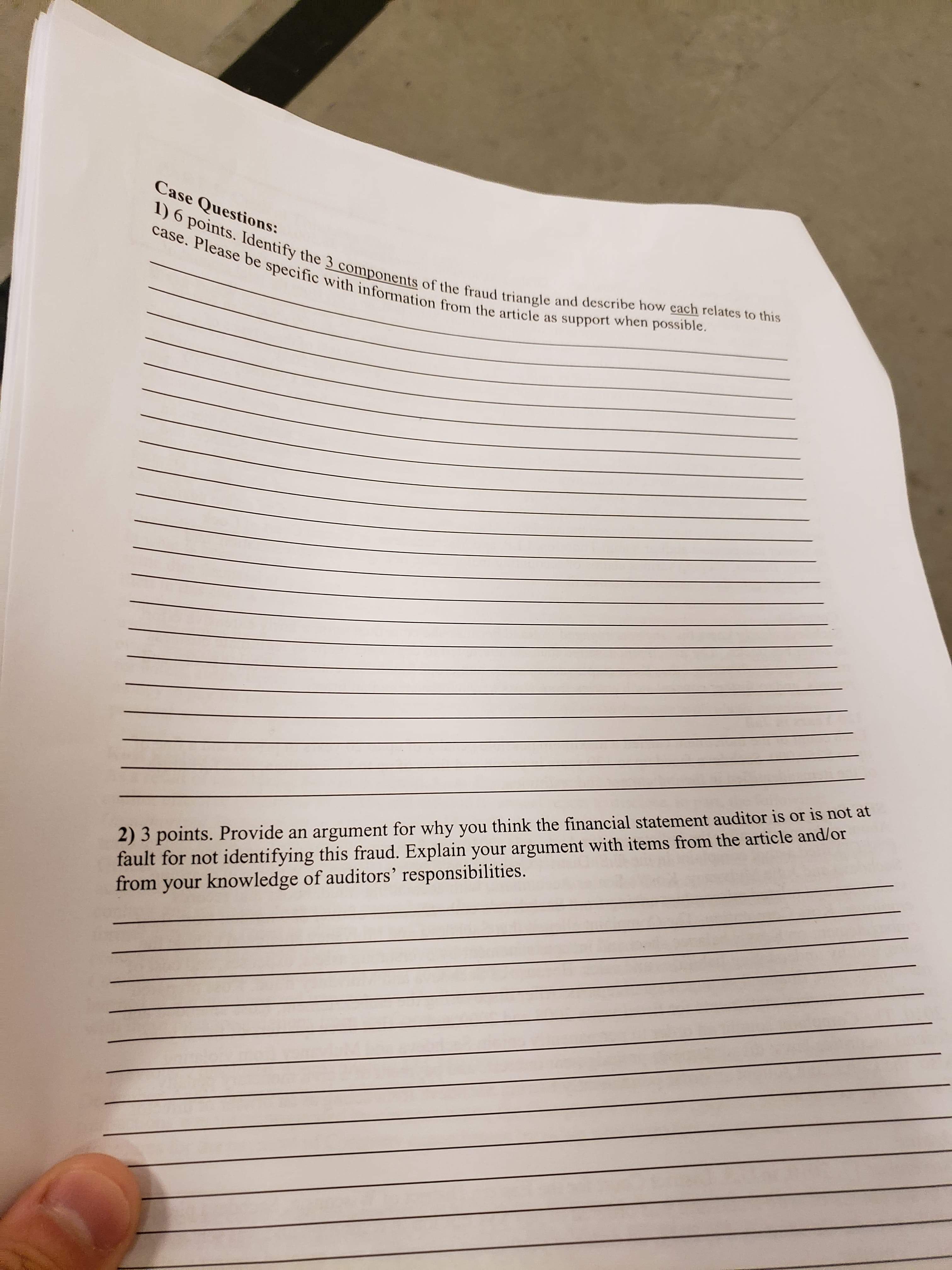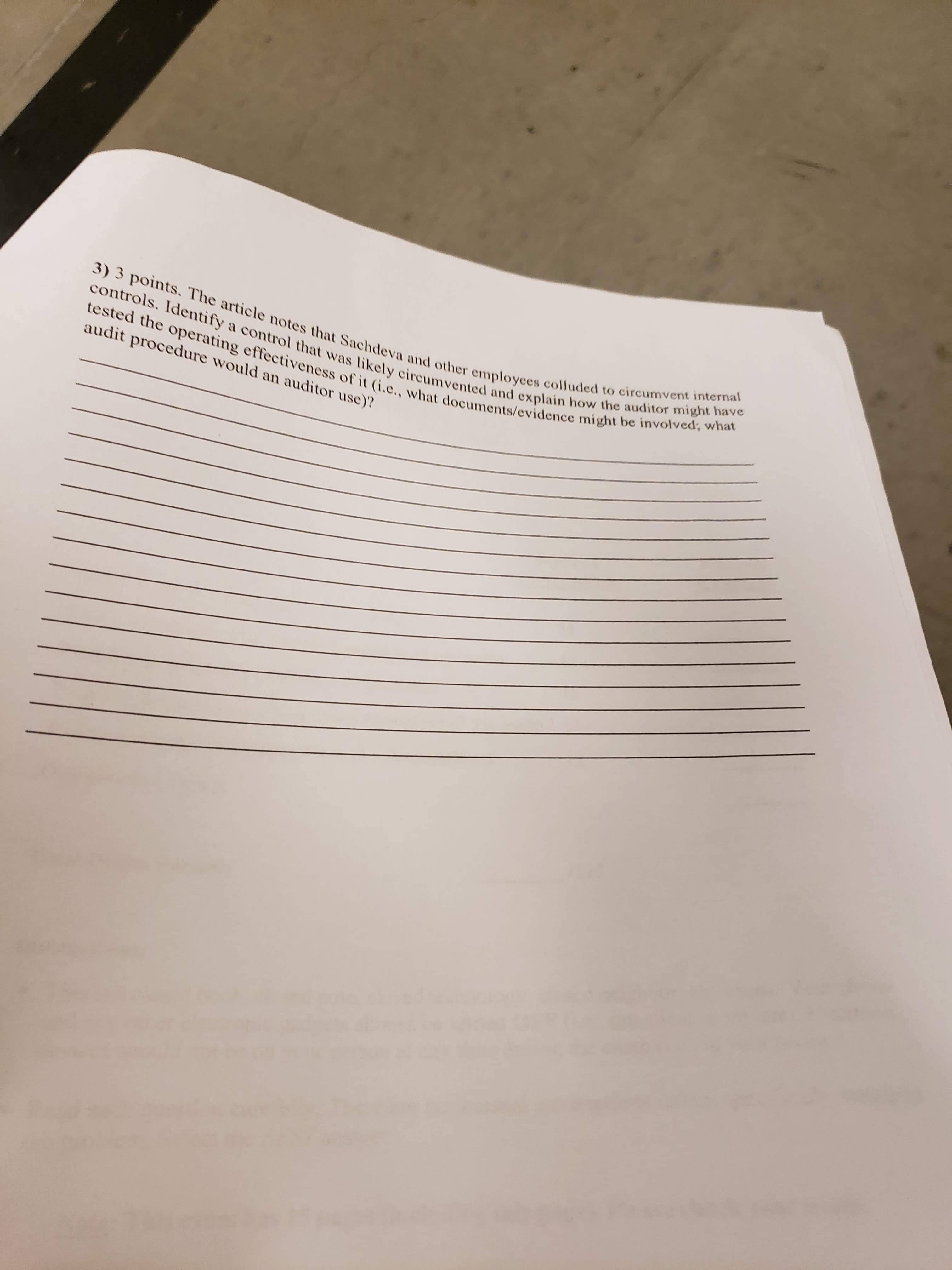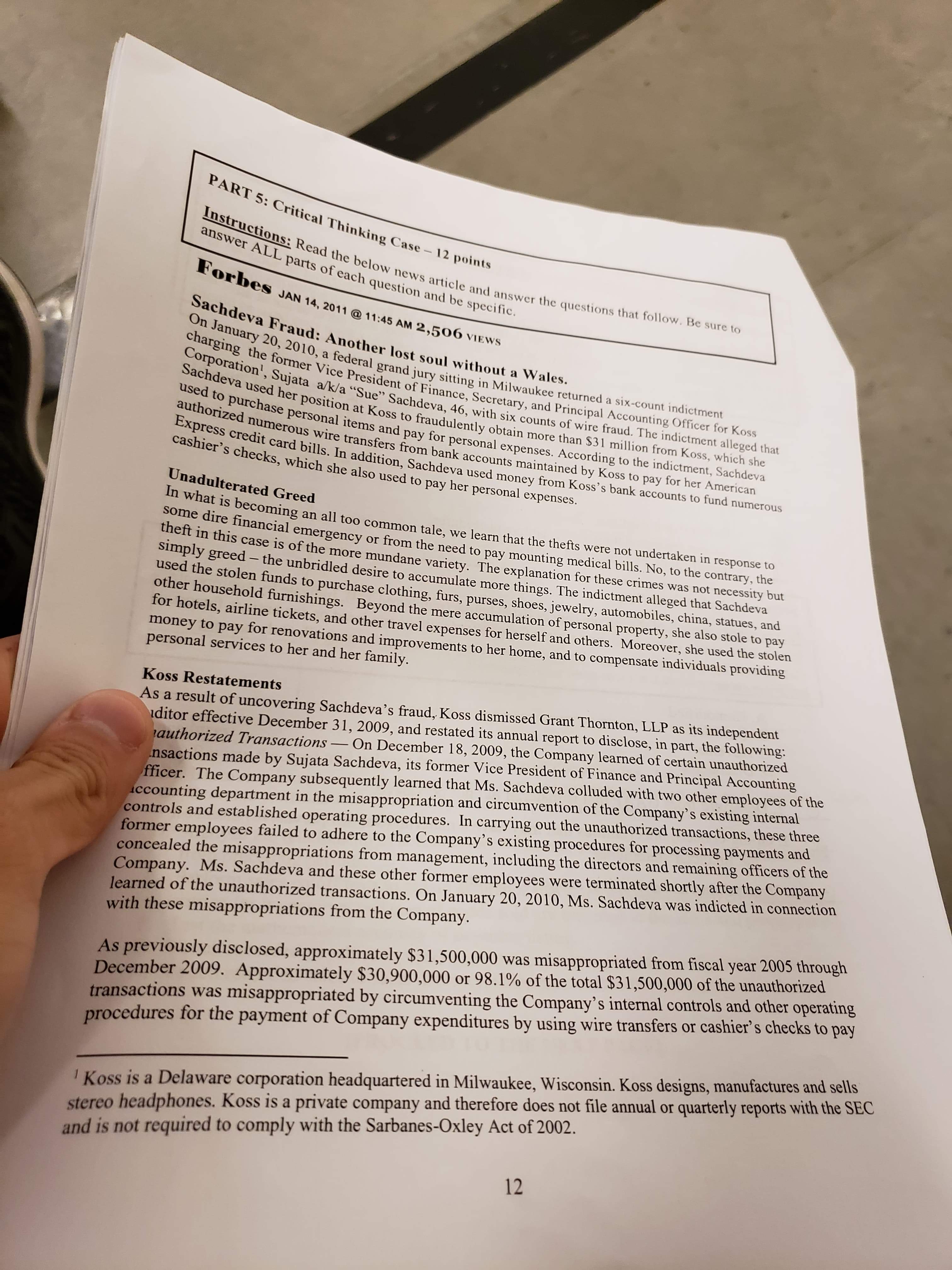
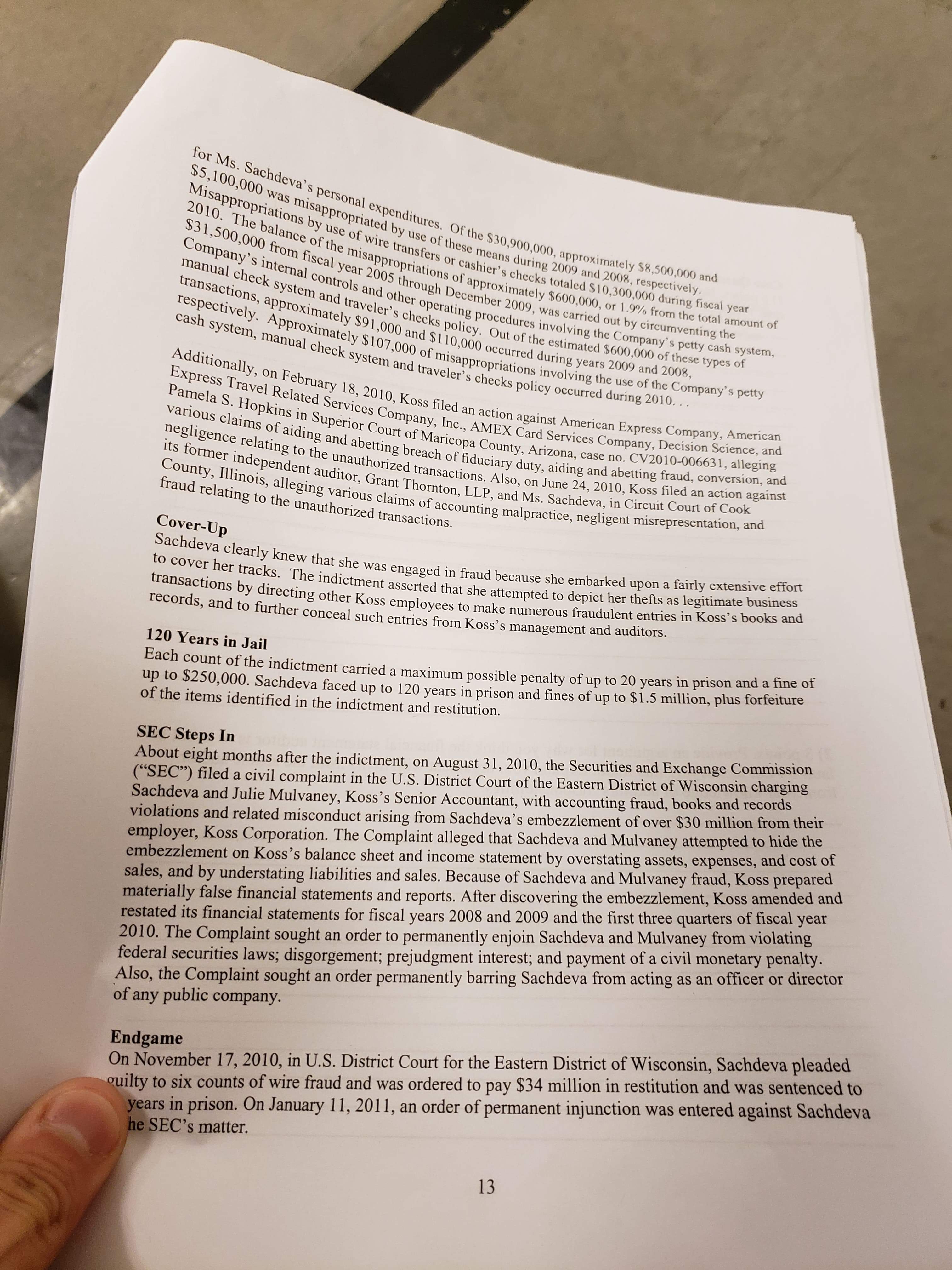
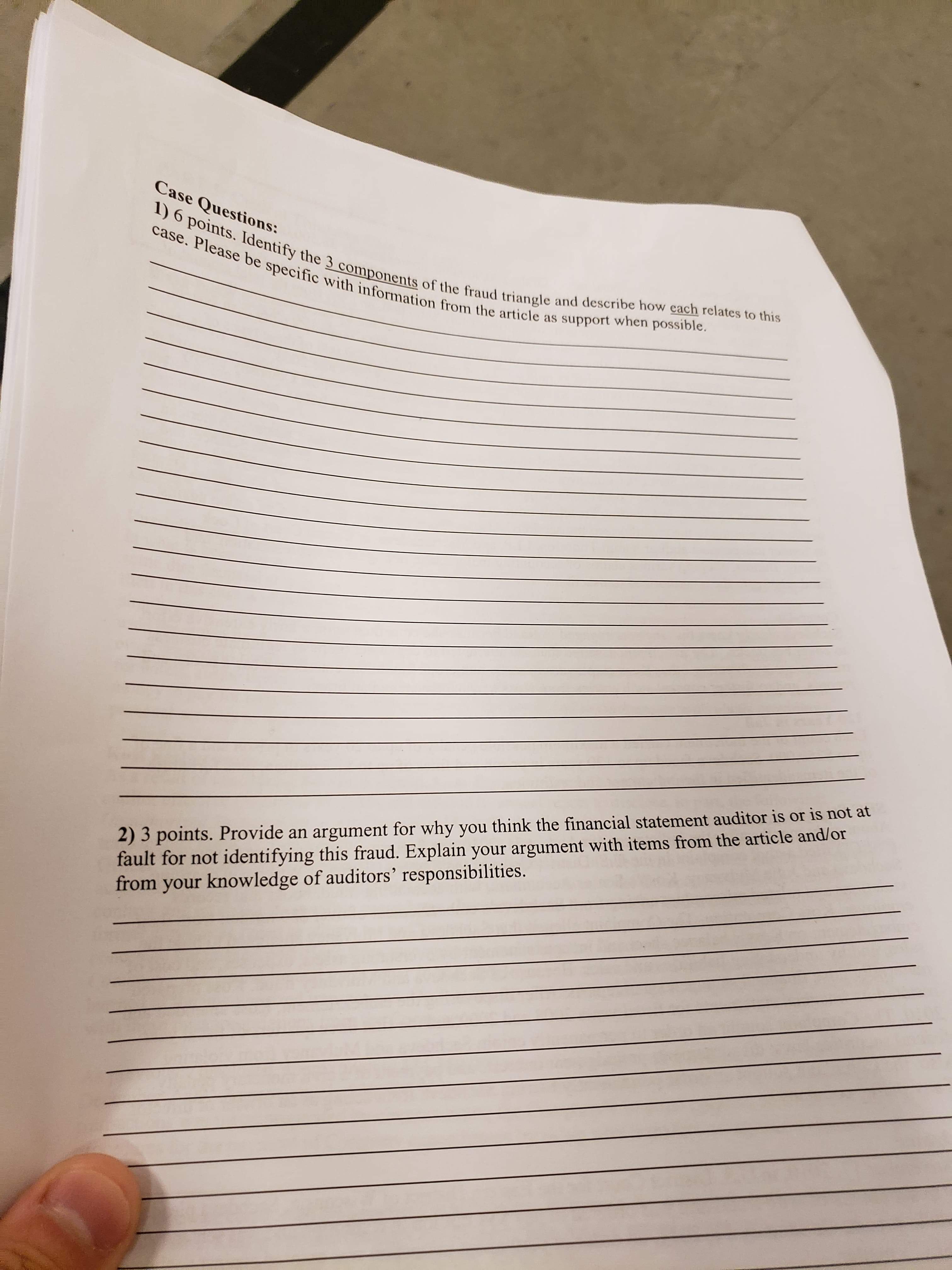
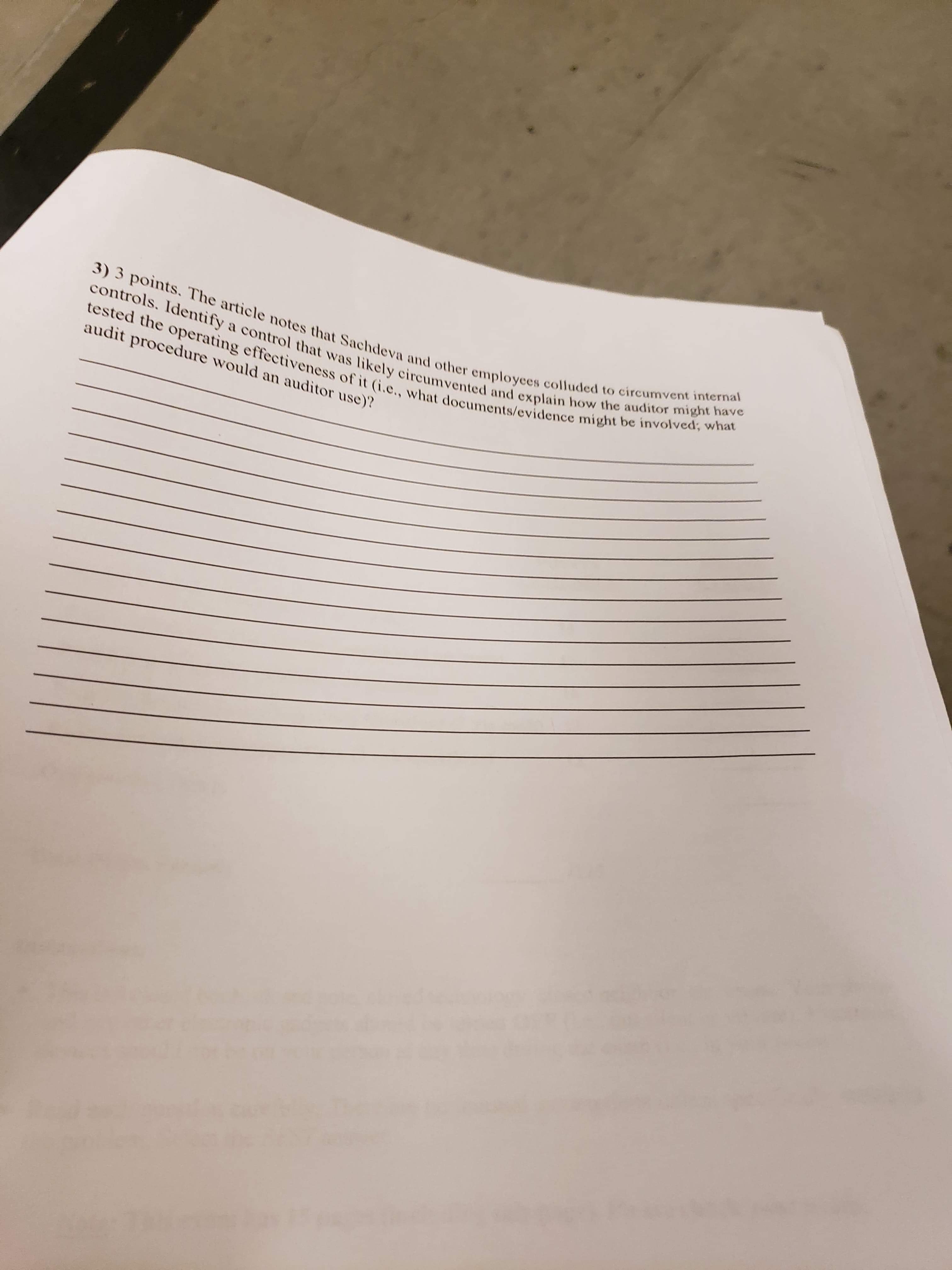
PART 5: Critical Thinking Case - 12 points Instructions: Read the below news article and answer the questions that follow. Be sure to answer ALL parts of each question and be specific. Forbes JAN 14, 2011 @ 11:45 AM 2,506 VIEWS Sachdeva Fraud: Another lost soul without a Wales. On January 20, 2010, a federal grand jury sitting in Milwaukee returned a six-count indictment charging the former Vice President of Finance, Secretary, and Principal Accounting Officer for Koss Corporation', Sujata a/k/a "Sue" Sachdeva, 46, with six counts of wire fraud. The indictment alleged that Sachdeva used her position at Koss to fraudulently obtain more than $31 million from Koss, which she used to purchase personal items and pay for personal expenses. According to the indictment, Sachdeva authorized numerous wire transfers from bank accounts maintained by Koss to pay for her American Express credit card bills. In addition, Sachdeva used money from Koss's bank accounts to fund numerous cashier's checks, which she also used to pay her personal expenses. Unadulterated Greed In what is becoming an all too common tale, we learn that the thefts were not undertaken in response to some dire financial emergency or from the need to pay mounting medical bills. No, to the contrary, the theft in this case is of the more mundane variety. The explanation for these crimes was not necessity but simply greed - the unbridled desire to accumulate more things. The indictment alleged that Sachdeva used the stolen funds to purchase clothing, furs, purses, shoes, jewelry, automobiles, china, statues, and other household furnishings. Beyond the mere accumulation of personal property, she also stole to pay for hotels, airline tickets, and other travel expenses for herself and others. Moreover, she used the stolen money to pay for renovations and improvements to her home, and to compensate individuals providing personal services to her and her family. Koss Restatements As a result of uncovering Sachdeva's fraud, Koss dismissed Grant Thornton, LLP as its independent iditor effective December 31, 2009, and restated its annual report to disclose, in part, the following: authorized Transactions - On December 18, 2009, the Company learned of certain unauthorized nsactions made by Sujata Sachdeva, its former Vice President of Finance and Principal Accounting fficer. The Company subsequently learned that Ms. Sachdeva colluded with two other employees of the accounting department in the misappropriation and circumvention of the Company's existing internal controls and established operating procedures. In carrying out the unauthorized transactions, these three former employees failed to adhere to the Company's existing procedures for processing payments and concealed the misappropriations from management, including the directors and remaining officers of the Company. Ms. Sachdeva and these other former employees were terminated shortly after the Company learned of the unauthorized transactions. On January 20, 2010, Ms. Sachdeva was indicted in connection with these misappropriations from the Company. As previously disclosed, approximately $31,500,000 was misappropriated from fiscal year 2005 through December 2009. Approximately $30,900,000 or 98.1% of the total $31,500,000 of the unauthorized transactions was misappropriated by circumventing the Company's internal controls and other operating procedures for the payment of Company expenditures by using wire transfers or cashier's checks to pay Koss is a Delaware corporation headquartered in Milwaukee, Wisconsin. Koss designs, manufactures and sells stereo headphones. Koss is a private company and therefore does not file annual or quarterly reports with the SEC and is not required to comply with the Sarbanes-Oxley Act of 2002. 12for Ms. Sachdeva's personal expenditures. Of the $30,900,000, approximately $8,500,000 and $5,100,000 was misappropriated by use of these means during 2009 and 2008, respectively. Misappropriations by use of wire transfers or cashier's checks totaled $10,300,000 during fiscal year 2010. The balance of the misappropriations of approximately $600,000, or 1.9% from the total amount of $31,500,000 from fiscal year 2005 through December 2009, was carried out by circumventing the Company's internal controls and other operating procedures involving the Company's petty cash system, manual check system and traveler's checks policy. Out of the estimated $600,000 of these types of transactions, approximately $91,000 and $1 10,000 occurred during years 2009 and 2008, respectively. Approximately $107,000 of misappropriations involving the use of the Company's petty cash system, manual check system and traveler's checks policy occurred during 2010. . . Additionally, on February 18, 2010, Koss filed an action against American Express Company, American Express Travel Related Services Company, Inc., AMEX Card Services Company, Decision Science, and Pamela S. Hopkins in Superior Court of Maricopa County, Arizona, case no. CV2010-006631, alleging various claims of aiding and abetting breach of fiduciary duty, aiding and abetting fraud, conversion, and negligence relating to the unauthorized transactions. Also, on June 24, 2010, Koss filed an action against its former independent auditor, Grant Thornton, LLP, and Ms. Sachdeva, in Circuit Court of Cook County, Illinois, alleging various claims of accounting malpractice, negligent misrepresentation, and fraud relating to the unauthorized transactions. Cover-Up Sachdeva clearly knew that she was engaged in fraud because she embarked upon a fairly extensive effort to cover her tracks. The indictment asserted that she attempted to depict her thefts as legitimate business transactions by directing other Koss employees to make numerous fraudulent entries in Koss's books and records, and to further conceal such entries from Koss's management and auditors. 120 Years in Jail Each count of the indictment carried a maximum possible penalty of up to 20 years in prison and a fine of up to $250,000. Sachdeva faced up to 120 years in prison and fines of up to $1.5 million, plus forfeiture of the items identified in the indictment and restitution. SEC Steps In About eight months after the indictment, on August 31, 2010, the Securities and Exchange Commission ("SEC") filed a civil complaint in the U.S. District Court of the Eastern District of Wisconsin charging Sachdeva and Julie Mulvaney, Koss's Senior Accountant, with accounting fraud, books and records violations and related misconduct arising from Sachdeva's embezzlement of over $30 million from their employer, Koss Corporation. The Complaint alleged that Sachdeva and Mulvaney attempted to hide the embezzlement on Koss's balance sheet and income statement by overstating assets, expenses, and cost of sales, and by understating liabilities and sales. Because of Sachdeva and Mulvaney fraud, Koss prepared materially false financial statements and reports. After discovering the embezzlement, Koss amended and restated its financial statements for fiscal years 2008 and 2009 and the first three quarters of fiscal year 2010. The Complaint sought an order to permanently enjoin Sachdeva and Mulvaney from violating federal securities laws; disgorgement; prejudgment interest; and payment of a civil monetary penalty. Also, the Complaint sought an order permanently barring Sachdeva from acting as an officer or director of any public company. Endgame On November 17, 2010, in U.S. District Court for the Eastern District of Wisconsin, Sachdeva pleaded guilty to six counts of wire fraud and was ordered to pay $34 million in restitution and was sentenced to years in prison. On January 11, 2011, an order of permanent injunction was entered against Sachdeva he SEC's matter. 13Case Questions: 1) 6 points. Identify the 3 components of the fraud triangle and describe how each relates to this case. Please be specific with information from the article as support when possible. 2) 3 points. Provide an argument for why you think the financial statement auditor is or is not at fault for not identifying this fraud. Explain your argument with items from the article and/or from your knowledge of auditors' responsibilities.3) 3 points. The article notes that Sachdeva and other employees colluded to circumvent internal controls. Identify a control that was likely circumvented and explain how the auditor might have tested the operating effectiveness of it (i.c., what documents/evidence might be involved; what audit procedure would an auditor use)




